Note: This is one article in a series about horse vision. I’ve compiled all of them, including more information and references, in this blogpost: Horse Vision.
I’ve been looking into horses’ eyes lately. Literally and figuratively.
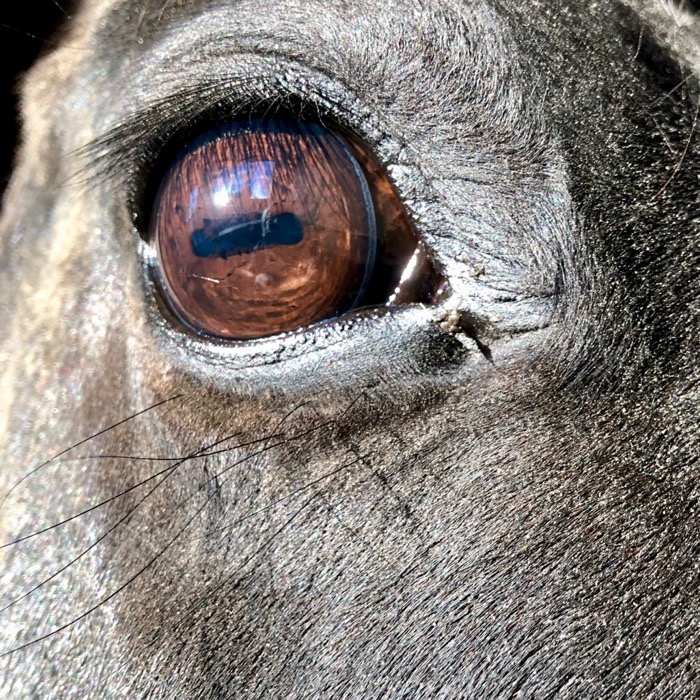
In November, l’ll be talking at Equine Affaire about the horse’s senses, how their view of the world impacts how they behave, and how we can use that knowledge to interact with them with understanding and effectiveness.
Sight is the sense we think of first. It’s obvious. The horse’s eye is one of the largest on the planet. People see that big eye and think that it’s like ours, but that the horse can see further and with more clarity. That’s not the case at all. I’ve been learning about the anatomy of the horse’s eye and it’s different than ours. Here is one important distinction: the horse has a streak of visual acuity. This is the part of the eye that gives them the ability to see detail. Outside of that streak, the world looks rather fuzzy to a horse. Think of it as if the horse is wearing bifocal glasses, but that the magnified strip is in the middle of the glasses, not the bottom. In order for the horse to see something with clarity, they have to move their head so that lines up with the streak of visual acuity.
This is why, although it feels counterintuitive to you, when your horse raises and turns their head when tense, it’s best to let them look, rather than to hold on tight and restrict their movement. Once they can clearly see what worries them, they usually settle down.
Tonka and I trailered to a barn to take a lesson. A pet pig lives there.
Here, he knows that the pig, Archie, is in front of him, but the visual information is fuzzy. Tonka does get a whiff.
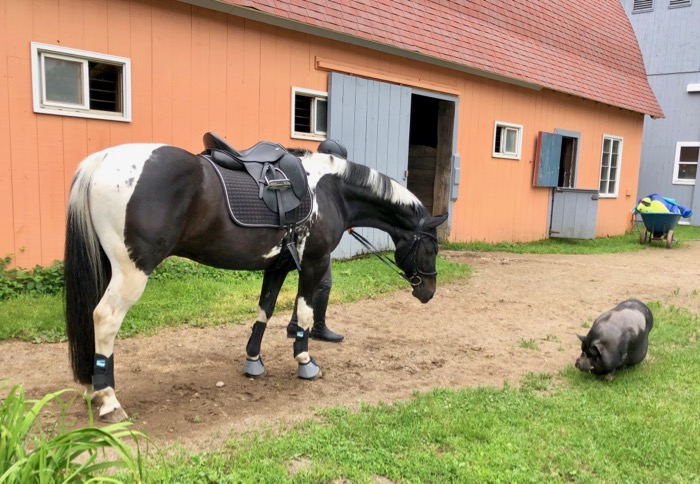
Then Tonka raises and turns his head. Now Archie appears in Tonka’s streak of visual acuity. Tonka gets Archie in focus, and concludes that as weird as this creature is, he’s nothing to worry about.
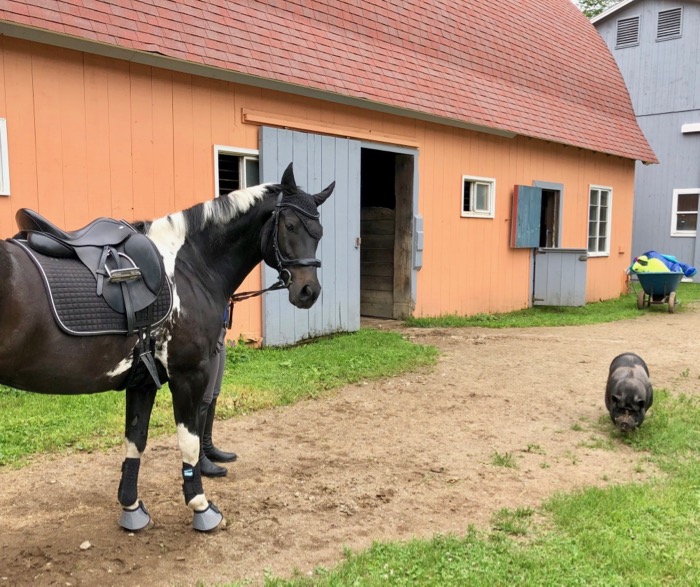
The visual streak is also highly sensitive to changes in brilliance and motion, far more than what we can register with our eyes, which is why your horse can seem so reactive to what to you seems perfectly boring.
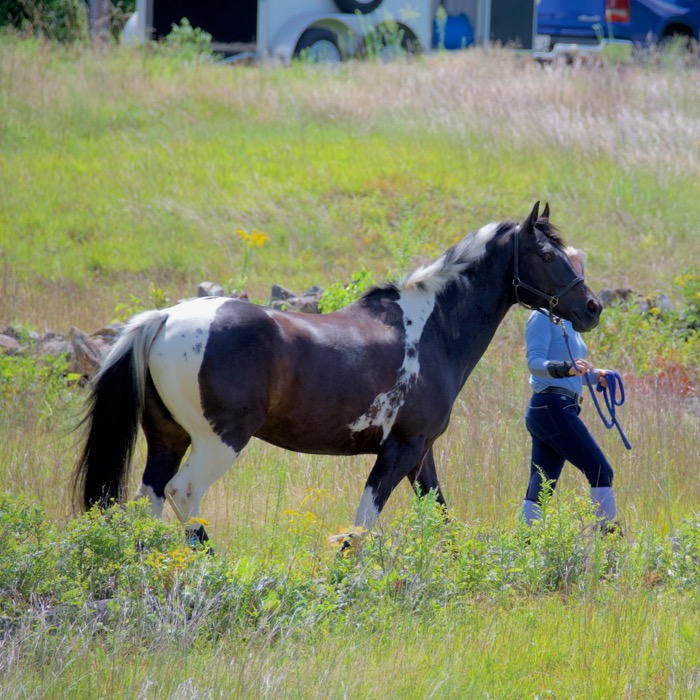
There’s a lot more to know about your horse’s eyesight. Color, range of vision, light sensitivity, all differ from what we humans experience. I’ll be sharing more of that in my talk at Equine Affaire, and then later here on the blog.
Who’s coming to Equine Affaire? Perhaps we can all meet up?
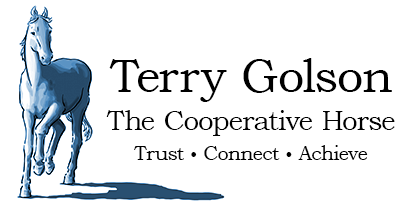

I knew some of this, but not all. Thanks for sharing!
Hi Terry
I’ve been working with a couple of horses who, I am pretty sure, have their eyesight affected – could you confirm what some of the signs or symptoms may be?
Horse 1 – was affected by a close lightning strike, which caused swelling to the head and body. Since then is extremely jumpy, even in familiar surroundings – listening and smelling intently at every little noise, even a bird noise.
Horse 2 – third eye lid was removed from L eye (due to a growth), since then has difficulty staying upright in the horse float when taking a L-hand turn (no matter how slow you take the turn) – may this surgery have affected her balance? Also became more reactive post-surgery, which continues some years later. Vets tell me there should be no change – she is my horse and I can tell you that she is different since the surgery!
thanks
I’m not a veterinarian, and anything I say will be conjecture from this distance, but here are some thoughts: Horse 1 has been through a terrifying experience and the behavior could be from that. The horse doesn’t know why they were hurt, and in their mind, it could have been anything that triggered it, and it could happen again. You know how rare a lightening strike is, the horse doesn’t. It could also be that the lightening caused permanent physical change. I’d try to keep that horse’s life and environment as serene as possible.
Horse 2 – You’re noticing a specific balance issue, so I’d think there’s something specific and physical going on. Do you notice balance issues at any other times? New fear issues? Perhaps there are other unseen growths? I wonder if the horse is blindfolded in the trailer, whether they would still be unbalanced?
Thanks Terry
I checked today and it was actually the third eye lid on the R eye (not L). I haven’t noticed any balance issues, other than when turning left when towing the float. Yes, there have been new fear issues. She used to be a steady and reliable trail horse, but now is quite reactive (I think mostly to noises, like a kangaroo moving in the bush, etc). She is still her old self in familiar surroundings like our arena, etc.
Perhaps the eye surgery is what is called a “red herring” – a misleading path. I’ve known horses who have shown first signs of lameness in the float. Perhaps the turning causes some pain?